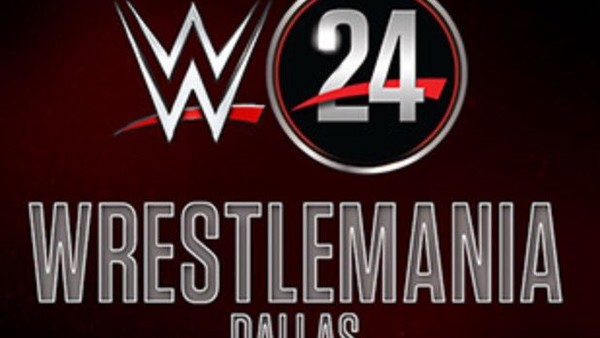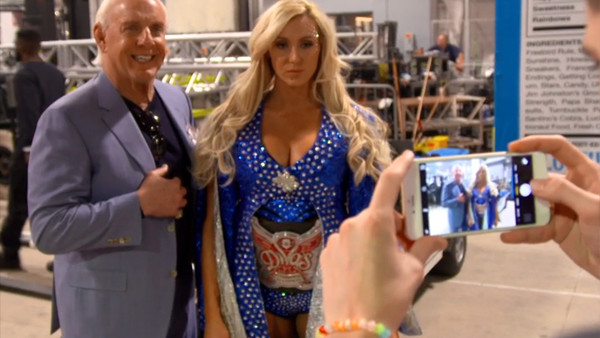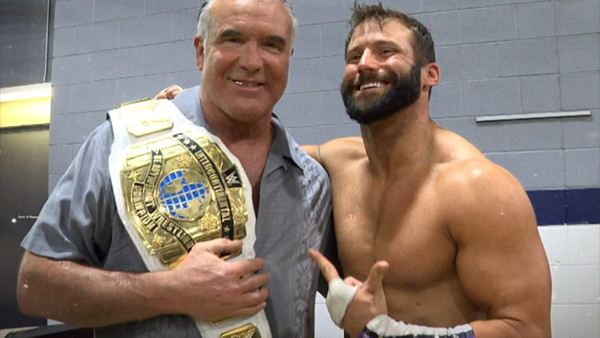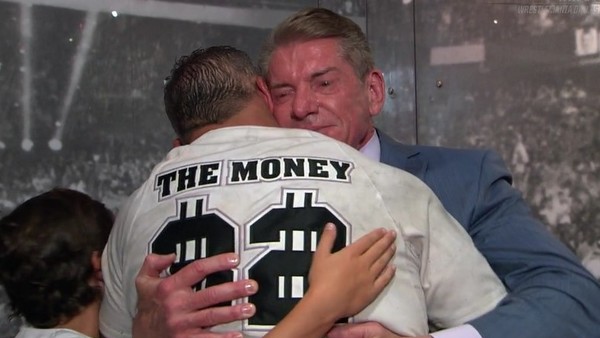WWE 24: WrestleMania Dallas Review
Is the Network's latest documentary 24 carat gold?

The WWE Network has often been criticised for the abject inanity of the vast majority of its original content, but one programme which has consistently delivered is the 24 series. Introspective, interesting, and insightful, the documentaries provide a fascinating glimpse into the reality behind the wrestling, and are exactly the sort of content subscribers desire.
The latest instalment in the series, WWE 24: WrestleMania Dallas, maintains this high standard, as it peers behind the curtain during the weekend the promotion prepared for the biggest event in its history. The hour-long feature focuses on three main narratives: Charlotte Flair following in her father's WrestleMania footsteps, The New Day's transformation from wearisome preachers to a popular cereal prize, and Triple H's preparation for the super-show's main event. The latter is most curious - despite the AT&T Stadium being the site of Roman Reigns' actual coronation following his aborted effort the previous year, the golden boy is barely seen throughout. Either WWE didn't wish to rehash 2015's story (although they did anyway), or a certain someone dictated he be painted as responsible for drawing the biggest crowd in WrestleMania history. Surely not our humble Hunter?
Charlotte's story would be the most naturally compelling had it not been repeated ad nauseum in a variety of other WWE documentaries. The younger Flair discussing her motivations for entering the business as a consequence of her brother Reid's untimely death nevertheless remains heartbreaking in a piece that often leans too heavily on the trite. Remarkably, WWE's 'pioneering' role in restoring women's wrestling is only vaguely touched upon, and instead Charlotte's story is presented as a deeply personal one between father and daughter. Ric's legendary blue robe from WrestleMania XXIV is the central artefact in the Flairess prolonging her dad's legacy. It's just a shame almost every other bugger on the show is draped in a glamorous mantle - even Snoop Dogg serenades Sasha in his bathrobe.

The exact purpose of trailing The New Day is somewhat hazier. Theirs is the story of a team leaden with a dreadful gimmick left to drown in the open-waters of WWE's midcard, before being saved by a life preserver of their own construction. Though Big E is alarmingly honest about their precarious position a year earlier, it's not the against-all-odds story the company really wants to tell, so instead they make it about a giant cereal box, littered with some feel-good banalities about 'camaraderie'. The trio detail their original plan for their Dallas entrance, a ludicrously complex work of theatre involving dozens of extras, a van shaped like an arse, and bicycles. Vince is in love with The New Day, and it's not hard to imagine him being besotted by this farfetched idea, but in the end it's our pal HHH who swoops in and takes credit for the (admittedly far superior) Booty-O's box scheme.
Levesque is the worst sort of primary-school goal scrounger, waiting at the periphery of everybody's hard-work before applying the finishing touch for the glory. His portrayal in this documentary is either blissfully oblivious to his ego-mongering reputation or highly ironic, as he greedily sticks his finger in every single pie. The comparisons with Vince McMahon are laid on thick, though the stress is on the 'admiring son-in-law' angle rather than 'hegemonic control freak'. As in every doc starring Hunter, there's the obligatory vignette in a gym, which tells us almost nothing besides the fact that 'The Game's' facility has a separate light switch for every bulb. Ever heard of serial circuitry, Paul?
There are a couple of sub-plots buried beneath the Triple-Hagiography, with both AJ Styles and Zack Ryder earning their 'WrestleMania moments' via very different routes. It almost seems like their scripts have been muddled up, as it's the independent superstar Styles who is presented as small-fry overawed by the occasion, whereas for inveterate jobber Ryder, his Intercontinental Championship win is just rewards for a decade of toil on the pre-show.

Some important details are omitted from the pair's respective arcs. It's not explicitly stated that the moment in the spotlight Ryder's "waited his whole damn life for" would have arrived much sooner had WWE not intentionally dismantled his popularity. Likewise, the 'heartfelt' scene where Ryder boots his dad out the ring to prevent him hogging his minute of glory is neatly cut. Instead, the facts are engineered to tug on the heartstrings, but perhaps just a little too forcefully. Few can be so emotionally devoid as to feel nothing for a man fulfilling his dream after combating cancer (which Ryder fairly describes as "!*$%"), and the symmetry of his photo op with Scott Hall is genuinely touching. Lovely as it all is, there're definitely too many eggs added to the Long Island Iced-Z's cake of compassion.
The outcome of AJ's journey is an unusual one also. Though the documentary takes great pains to delegitimise his independent past (and particularly, his TNA days), it doesn't shy away from showing the supreme reactions he received at both the Royal Rumble and WrestleMania itself. Not bad for a guy coming in from the cold. The conclusion is also depressingly reminiscent of Hideo Itami's tale from Santa Clara the year previous, with AJ losing on his big 'Mania debut. It wasn't quite as unceremonious as being dumped out of a Battle Royal by The Big Show, so the documentary needn't skirt around the subject. AJ is philosophical about the defeat: "Daddy won tonight," he muses. He didn't though, did he?
Whilst the first half of the documentary offers a tantalising look into the inner-workings of the super-show and the people behind the stars, the second portion is nothing more than a glorified clip-show, with the less memorable parts of WrestleMania conveniently glossed over (Brock Lesnar isn't shown once).

However, it's not without highlights. Analysing the McMahon family's contrasting reactions to Shane's heart-stopping, hugely unnecessary jump from the cell serves up some fascinating conclusions: the oft-robotic Linda is recast as a panicked mum, Shane's wife is naturally aghast, and Stephanie seems almost gleeful at her brother plummeting through a table. The most striking reaction is that of father Vince. Stoically holding back tears, the boss breaks down when his son returns backstage, embracing the once estranged Shane and mouthing, "I love you, I am so proud of you." Wrestling fans have a particularly skewed view of the chairman as an overblown megalomaniac, so it's a shame we aren't privy to more scenes like this where the caricature melts away to reveal a father, a grandfather, and a human being.
The coverage of the main event is similarly noteworthy, as it marks one of the first times on WWE programming that the vociferous jeers for Roman Reigns have been acknowledged, when he gives a Cena-esque rejoinder to the polarised fandom ("Whether they were booing me or cheering me, they were standing up"). The intention of addressing this oft-ignored white elephant isn't clear but the fact it's addressed at all is something. Though the boos have unquestionably been muted for this second viewing, this degree of honesty is refreshing, and elevates the feature above standard WWE fare.
This honesty is far from whole, however, and typical of all WWE programmes, 24: WrestleMania Dallas takes many liberties with the truth, and it'd be easy for someone less-informed to come away with the belief that WrestleMania 32 was the greatest show ever staged based on what's presented. However, these narrative distortions don't detract from the overall experience; the fragments of fiction fail to cloud over riveting rays of reality, ones which absorb the viewer in a perfectly produced, highly engrossing documentary.